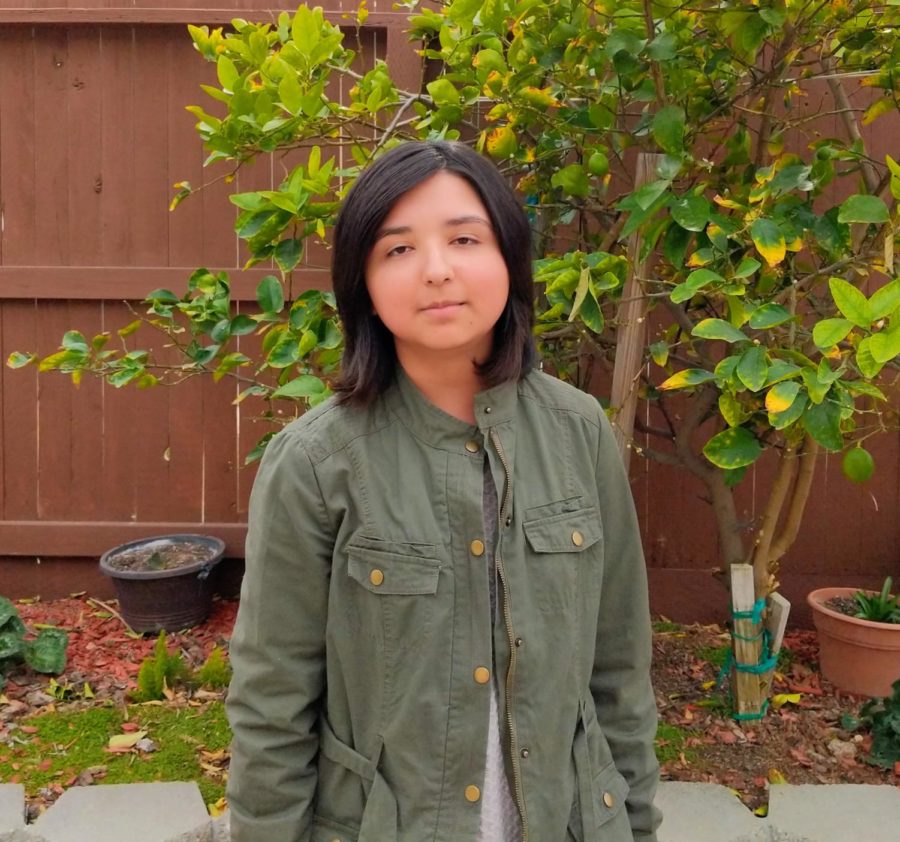Cancer Survivor Shares Experience and Life Changes
January 12, 2018
My name is Ashley Solorio. I was born on April 12, 2001 in Hollister, California, and I am is currently attending Los Banos High School and studying at Merced College this year. Through many years of being involved in my education and maintaining my academic skills, my life came to a sudden halt. Before, I attended Los Banos High School in 2015, I was originally diagnosed and treated at Valley Children’s Hospital in Madera, California with Pre-B High Risk Acute Lymphoblastic Leukemia on September 2, 2014 at the age of 13.
In the course of attending school through a home school program, I underwent an intensive chemotherapy per Children’s Oncology Group AALL1131 treatment protocol from September 3, 2014 to December 30, 2016 with a team of pediatric oncologists.
After experiencing my treatments, I understand that chemotherapy affects every individual differently, and when I received the chemotherapy treatments, I was hardly ever ill. Aside from my symptoms of fatigue, anemia, nausea, skin changes, and sudden appetite loss upon receiving the chemotherapy, I have also encountered seizure activity as a symptom from chemotherapy. When symptoms occurred, my body was rejecting the treatments and the seizures were the end result.
Despite this, I completed my treatments on December 30, 2016 and continued to be followed closely in the oncology clinic for evaluation and monitoring. It did not take long for me to recover from the cancer treatments I sustained, however, I found myself taking a long time to recover fully from another incident. During my treatments, I received the chemotherapy drug, methotrexate, through a common oncology procedure called a lumbar puncture where medications are injected directly into the spinal canal. I had a reaction to the chemotherapy mediation, and it caused acute intracranial bleeding and resulted in left hemiparesis on April 12, 2015. Meaning that when this reaction first occurred, the entire left side of my body was completely paralyzed. Eventually my state of complete left-sided paralysis lead to left-sided weakness, as I had to go through intense physical and occupational therapy. My body did not know how to execute functions, even though I had memory of it. Thus, I had to relearn how to walk, speak properly, maintain my posture, and consume food and drinks. Some of my healing process included psychical therapist’s holding me up on both sides to mimic the function of the walking and occupational therapist’s playing board games with me to try to maintain my posture. The physical appearance of my walking, posture, and speak is equivalent to an individual who had a stroke.
This reaction lead me to the hospital’s neurology clinic for my history of left hemiparesis. The neurologist, Dr. Ehrreich, diagnosed me with toxin leukoencephalopathy, along with significant left upper extremity weakness, and some cerebellar and ataxia symptoms. My impairments of muscle and mobility coordination lead me to proceed with physical therapy to this today because some parts of my brain which coordinate and command my body are damaged and will take years to heal. Toxic leukoencephalopathy or toxic spongiform leukoencephalopathy is a rare condition that is characterized by progressive damage to white matter in the brain due to causes such as exposure to chemotherapeutic drugs.
Through my hardships of cancer, left hemiparesis, and leukoencephalopathy, my priority was not to get caught up in the self pity and unfairness of life. Instead, I recognized the opportunities for wisdom and growth that accompany adversity. Thereby, accepting that adversity was inevitable in one’s life and acknowledging the functionality of one’s self. I try to get better beyond my treatments. I took for granted not respecting and imprinting the everyday tasks I did when I was healthy and without effort because for everything I am able to do now, always seems foreign and inhuman within my own self as my body will never be the same.
Even though, my leukoencephalopathy and left hemiparesis will be a major set back in my life, I recognize one’s life will not be lived if it is not originated in some form of suffering. Therefore, being able to tell my story with someone shows my will to survive. These difficulties initiated me to establish a life through a new lens of gratitude. I am thankful for a new day in which I am not a prisoner of my worsened impairments.
I am now wishing to pursue my goal of a higher education and obtain a degree in computer science. By surviving my cancer and the reaction which stemed from it, I have learned that cancer and other medical experiences are not necessarily a death sentence, and it sets example to myself and others that there could be life after any hardships.

